As our annual conference approaches, we continue to provide interviews, book reviews, insights into finance and longevity, and plenty of information on the latest research. Here’s what’s happened in June.
LEAF News
 Ending Age-Related Diseases 2023 approaches! On August 10-11, 2023, we will be holding our sixth annual conference to bring entrepreneurs, investors, pharma and biotech companies, researchers, and government organizations together. Fostering the exchange of information and encouraging cooperation between the various parts of the industry is the goal of our non-profit organization.
Ending Age-Related Diseases 2023 approaches! On August 10-11, 2023, we will be holding our sixth annual conference to bring entrepreneurs, investors, pharma and biotech companies, researchers, and government organizations together. Fostering the exchange of information and encouraging cooperation between the various parts of the industry is the goal of our non-profit organization.
Team and activities
Summer Off to a Great Start for Longevity: Summer is here, but we haven’t been relaxing around the pool. Instead, we’ve been busy working on the fight to defeat age-related diseases! The last few months have been a very busy time for us here at Lifespan.io as we prepare for our sixth Ending Age-Related Diseases conference.
 Zuzalu: Shining City on the Black Mountain: Arkadi Mazin recounts his experiences going to the pop-up city of Zuzalu, which Ethereum billionaire Vitalik Buterin helped to found. Cryptocurrency, longevity, and AI were among the many topics featured there.
Zuzalu: Shining City on the Black Mountain: Arkadi Mazin recounts his experiences going to the pop-up city of Zuzalu, which Ethereum billionaire Vitalik Buterin helped to found. Cryptocurrency, longevity, and AI were among the many topics featured there.
Chris Hemsworth’s Centr Partners with Lifespan.io: We are thrilled to announce a new partnership with Centr to provide its community with world-class expertise on longevity. Centr, a health and wellness ecosystem founded by Chris Hemsworth, announced an all-new partnership with Lifespan.io.
Lifespan News
 Bryan Johnson Thinks AI Should Run Your Life: In this video, Bryan Johnson, founder and CEO of Blueprint, shared his ideas about the role of artificial intelligence in the future of human health and society at the recent Healthspan Summit. Among other controversial statements about AI and the future of humanity, he suggests that we should let AI determine our well-being.
Bryan Johnson Thinks AI Should Run Your Life: In this video, Bryan Johnson, founder and CEO of Blueprint, shared his ideas about the role of artificial intelligence in the future of human health and society at the recent Healthspan Summit. Among other controversial statements about AI and the future of humanity, he suggests that we should let AI determine our well-being.
Chris Hemsworth’s Centr Launches Lifespan.io Partnership: Emmett Short discusses our partnership with famous actor Chris Hemsworth’s health and longevity platform, Centr.
Interviews
 Niklas Anzinger on Building a New Regulatory World: Ryan O’Shea interviews Niklas Anzinger of the Infinita VC fund, who discusses the pop-up city Zuzalu along with many other issues relating to network states, regulation, and longevity.
Niklas Anzinger on Building a New Regulatory World: Ryan O’Shea interviews Niklas Anzinger of the Infinita VC fund, who discusses the pop-up city Zuzalu along with many other issues relating to network states, regulation, and longevity.
SENS Research Foundation’s CEO on Accelerating Rejuvenation: We had the chance to interview Lisa Fabiny-Kiser, CEO of the well-known SENS Research Foundation, on all the various research, education, and advocacy activities that the organization is currently doing along with its plans for the future. Public opinion and the academic landscape have changed considerably since SRF was founded nearly 15 years ago.
Journal Club
How Superior DNA Repair Gives Bowhead Whales Longevity: Oliver Medvedik led a discussion of a paper showing how and why bowhead whales enjoy such long lifespans, pointing out the specific DNA repair mechanism that they do not share with other mammals.
Advocacy and Analysis
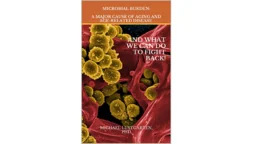 Michael Lustgarten Fights Back Against Microbes: Dr. Michael Lustgarten delivers a clear and enlightening exploration of the intricate relationship between microbial burden and aging in Microbial Burden: A Major Cause of Aging and Age-Related Disease and What We Can Do to Fight Back!
Michael Lustgarten Fights Back Against Microbes: Dr. Michael Lustgarten delivers a clear and enlightening exploration of the intricate relationship between microbial burden and aging in Microbial Burden: A Major Cause of Aging and Age-Related Disease and What We Can Do to Fight Back!
Dr. Matthew Walker Tells Us Why We Sleep: “Why We Sleep: Unlocking the Power of Sleep and Dreams” by Matthew Walker, renowned sleep research scientist and psychiatry professor at Harvard, is a comprehensive exploration of sleep that offers a rich blend of science, research, and practical advice.
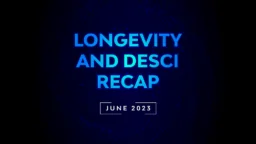 Longevity and DeSci Recap – June 2023: Welcome to the premier edition of Lifespan.io’s newest release, the Longevity and DeSci Recap. Here, we’ll fill you in on the very latest interviews, insights, and research in the longevity biotech sphere, covering topics such as blockchain, DAOs, cryptocurrency, and decentralized science (DeSci) and letting you know about exciting events or studies coming up.
Longevity and DeSci Recap – June 2023: Welcome to the premier edition of Lifespan.io’s newest release, the Longevity and DeSci Recap. Here, we’ll fill you in on the very latest interviews, insights, and research in the longevity biotech sphere, covering topics such as blockchain, DAOs, cryptocurrency, and decentralized science (DeSci) and letting you know about exciting events or studies coming up.
Research Roundup
Linking Bile Duct Blockage and Cellular Senescence: Research published in Aging has shed new light on the relationship between certain liver diseases and cellular senescence.
 Benefits of Dasatinib and Quercetin Treatment in Monkeys: In one of the first studies of its kind, the popular senolytic combination, administered systematically for six months, produced several health benefits in these animals. Some effects were augmented by caloric restriction.
Benefits of Dasatinib and Quercetin Treatment in Monkeys: In one of the first studies of its kind, the popular senolytic combination, administered systematically for six months, produced several health benefits in these animals. Some effects were augmented by caloric restriction.
Giving Old Stem Cells Lasting Youthful Powers: Researchers publishing in Cell Proliferation have described factors that appear to give old muscle stem cells the ability to effectively proliferate and differentiate for a very long time.
 Stabilized Vitamin C Improves Brain Aging in Mice: Korean scientists publishing in Nature were able to increase the stability of vitamin C, a powerful antioxidant, using a short, engineered DNA molecule called an aptamer. The result improved various aspects of brain aging in naturally aged mice.
Stabilized Vitamin C Improves Brain Aging in Mice: Korean scientists publishing in Nature were able to increase the stability of vitamin C, a powerful antioxidant, using a short, engineered DNA molecule called an aptamer. The result improved various aspects of brain aging in naturally aged mice.
Castration Influences Growth and Median Lifespan in Mice: Research published in Aging Cell has discovered that castrated male mice show similarities to females in growth and lifespan. It is widely known that women outlive men on average, and this paper dives into the biological reasons.
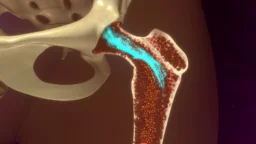 How Donated Stem Cells Become Functional Cells: Scientists have verified the effectiveness of stem cell transplants, researched a core reason behind it, and published their findings in Aging Cell. Hematopoietic stem cells (HSCs), which make blood cells, are governed by their local microenvironment and can affect it as well.
How Donated Stem Cells Become Functional Cells: Scientists have verified the effectiveness of stem cell transplants, researched a core reason behind it, and published their findings in Aging Cell. Hematopoietic stem cells (HSCs), which make blood cells, are governed by their local microenvironment and can affect it as well.
How Superior DNA Repair Gives Bowhead Whales Longevity: Scientists have found a possible explanation for bowhead whales’ exceptional lifespan, and it might be translatable to humans. With some exceptions, body size is strongly correlated with longevity across species, and the researchers attribute this to better genetic protection.
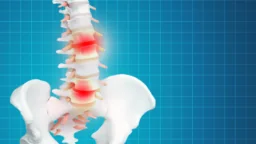 Sirtuins May Help Against Inflammatory Spinal Degeneration: Researchers publishing in Aging have outlined a relationship between disc degeneration, macrophage polarization, inflammation, and sirtuins, demonstrating their effectiveness in a rat model of the disease.
Sirtuins May Help Against Inflammatory Spinal Degeneration: Researchers publishing in Aging have outlined a relationship between disc degeneration, macrophage polarization, inflammation, and sirtuins, demonstrating their effectiveness in a rat model of the disease.
Obese People Have Impaired Brain Responses to Nutrients: Scientists publishing in Nature Metabolism have shown that obese people have dampened brain responses to food. This effect lingers even after diet-induced weight loss, possibly explaining why it is easy to regain weight.
 Rapamycin Users Report Positive Effects in Survey: A new study published in GeroScience addresses the efficacy and side effects of off-label rapamycin, which is widely associated with longevity, as a preventive therapy to maintain healthspan.
Rapamycin Users Report Positive Effects in Survey: A new study published in GeroScience addresses the efficacy and side effects of off-label rapamycin, which is widely associated with longevity, as a preventive therapy to maintain healthspan.
How Cancer Hijacks the Nervous System: A review article published in Nature has outlined the current research into how the nervous system’s signals affect cancer growth. This review opens with a bold but heavily documented claim: the central nervous system (CNS) affects various cancers through signaling mechanisms.
 Shingles Vaccine May Protect Against Alzheimer’s: New research suggests that vaccination against shingles, a disease caused by the varicella zoster virus, can provide some protection against Alzheimer’s disease, mostly in women.
Shingles Vaccine May Protect Against Alzheimer’s: New research suggests that vaccination against shingles, a disease caused by the varicella zoster virus, can provide some protection against Alzheimer’s disease, mostly in women.
The Common Sweetener Sucralose May Accelerate Aging: Researchers publishing in Journal of Toxicology and Environmental Health, Part B have found that the common sweetener sucralose may contribute to genetic and intestinal damage. The authors disagree with the fundamental claims that were made prior to the approval of sucralose by the FDA.
 Clinical Trial: Collagen Peptides Reduce AGEs in Skin: A placebo-controlled, double-blinded human clinical trial published in Bioscience, Biotechnology, and Biochemistry has determined that collagen peptide ingestion reduces the amount of advanced glycation end-products (AGEs) in the skin.
Clinical Trial: Collagen Peptides Reduce AGEs in Skin: A placebo-controlled, double-blinded human clinical trial published in Bioscience, Biotechnology, and Biochemistry has determined that collagen peptide ingestion reduces the amount of advanced glycation end-products (AGEs) in the skin.
Bacteria May Be Fueling Cancer with Methionine: Scientists have found that the tumor microenvironment in lung adenocarcinoma favors methionine-producing bacteria, which, in turn, help the cancer survive nutrient scarcity.
 New Clock: People Who Exercise Are Biologically Younger: Using a DNA methylation clock based on fitness, researchers publishing in GeroScience have determined that people who exercise regularly are biologically younger on average.
New Clock: People Who Exercise Are Biologically Younger: Using a DNA methylation clock based on fitness, researchers publishing in GeroScience have determined that people who exercise regularly are biologically younger on average.
Bodybuilding Helps Older People Stay Strong in Human Study: In a controlled human study published in Frontiers in Public Health, Iranian researchers have demonstrated that resistance training and creatine supplementation are effective in helping older people retain their strength.
 Scientists Modify Lettuce to Make Orally Available Insulin: Researchers have genetically engineered lettuce to produce human insulin. The resulting plant-based drug, which can be taken orally, was successfully tested in mice and acts more gradually than injections.
Scientists Modify Lettuce to Make Orally Available Insulin: Researchers have genetically engineered lettuce to produce human insulin. The resulting plant-based drug, which can be taken orally, was successfully tested in mice and acts more gradually than injections.
New Peptide Puts the Brakes on Cellular Senescence: Researchers publishing in the Nature journal npj aging have discovered a new peptide that might prevent cells from becoming senescent and possibly youthen human skin.
 Preserved Kidneys Rewarmed and Transplanted in Rats: For the first time in history, scientists have been able to freeze, preserve, rewarm, and transplant rat kidneys with a new method of organ cryopreservation. Today, organ transplantation is severely limited by the fact that organs can only be preserved for a short time in near-freezing temperatures.
Preserved Kidneys Rewarmed and Transplanted in Rats: For the first time in history, scientists have been able to freeze, preserve, rewarm, and transplant rat kidneys with a new method of organ cryopreservation. Today, organ transplantation is severely limited by the fact that organs can only be preserved for a short time in near-freezing temperatures.
Activating Just One Gene to Rejuvenate Model Mice: In a new study published in Aging Cell, researchers report that transient activation of the Yamanaka factor Oct4 allowed partial reprogramming of cells, which led to rejuvenation in these cells and in a mouse model of premature aging.
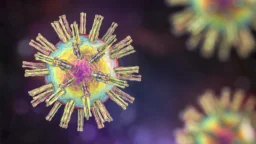 The Links Between Herpes and Dementia: One of the most common diseases in the world is herpes, as 50 to 80% of Americans have this illness. However, the proteins involved in this latent disease are also involved in Alzheimer’s.
The Links Between Herpes and Dementia: One of the most common diseases in the world is herpes, as 50 to 80% of Americans have this illness. However, the proteins involved in this latent disease are also involved in Alzheimer’s.
A Potential New Foundation for Epigenetic Clocks: A study recently published in Aging Cell has discovered an entirely new method of looking at methylation, one that is less limited to certain sites, and experimented with multiple ways of analyzing it.
 A Combination of Exercise and Diet for Insulin Sensitivity: Scientists publishing in Nature Metabolism have determined that in obese people, healthy diet and exercise bring stronger metabolic benefits than diet alone.
A Combination of Exercise and Diet for Insulin Sensitivity: Scientists publishing in Nature Metabolism have determined that in obese people, healthy diet and exercise bring stronger metabolic benefits than diet alone.
Taurine deficiency as a driver of aging: Taurine abundance decreases during aging, and these results demonstrate that reversal of this decline through taurine supplementation increases healthspan and lifespan in mice and worms and health span in monkeys.
Higher versus lower nut consumption and changes in cognitive performance over two years in a population at risk of cognitive decline: Frequent nut consumption was associated with a smaller decline in general cognitive performance over two years in older adults at risk of cognitive decline.
Association of daily step volume and intensity with cardiometabolic risk in older adults: Daily step volume and intensity were inversely associated with cardiometabolic risk in community-dwelling older adults in a dose-response manner.
Resistance training rejuvenates aging skin by reducing circulating inflammatory factors and enhancing dermal extracellular matrices: Both aerobic and resistance training significantly improved skin elasticity and upper dermal structure, and resistance training also improved dermal thickness.
Resistant starches from dietary pulses modulate the gut metabolome in association with the microbiome in humanized mice: These findings highlight the potential of discrete structures of these dietary fibers to induce targeted alterations in the gut metabolomic pool
“Heads Up” for Creatine Supplementation and its Potential Applications for Brain Health and Function: This review provides an up-to-date summary of creatine and indices of brain health and function and discusses possible sex- and age-related differences in responses to creatine supplementation on the brain.
Protection of Liver Functions and Improvement of Kidney Functions by Twelve Weeks Consumption of Cuban Policosanol: People dosed with 20 milligrams of policosanol also had improved blood pressure.
The acute effect of different NAD+ precursors included in the combined metabolic activators: This study provided a plasma metabolomic landscape of different formulations of these precursors.
A short dasatinib and quercetin treatment is sufficient to reinstate potent adult neuroregenesis in the aged killifish: These results provide a cellular mechanism for age-related regeneration resilience and a proof-of-concept of a potential therapy to revive neurogenic potential.
Sexual dimorphic metabolic and cognitive responses of C57BL/6 mice to Fisetin or Dasatinib and quercetin cocktail oral treatment: Senolytic treatment in young adulthood has beneficial, negligible, or detrimental effects in these mice, dependent upon sex and treatment.
Discovery of senolytics using machine learning: This approach led to a several hundred-fold reduction in drug screening costs and demonstrates that artificial intelligence can take maximum advantage of small and heterogeneous drug screening data
Higher testosterone and testosterone/estradiol ratio in men are associated with decreased Pheno-/GrimAge: There is a potential protective effect of testosterone on lifespan and, conceivably, cardiovascular health.
Gene expressions associated with longer lifespan and aging exhibit similarity in mammals: These results highlight the importance of focusing on adaptive aspects of the aging transcriptome and demonstrate that cross-species genomics can be a powerful approach.
News Nuggets
 Dr. David Sinclair Assumes Presidency of the AHLR: The Academy for Health and Lifespan Research (AHLR) is proud to announce the election of Dr. David Sinclair as its new President. Dr. Sinclair, a distinguished Professor of Genetics at Harvard Medical School and renowned author of the New York Times Bestseller “Lifespan,” has been chosen by his peers.
Dr. David Sinclair Assumes Presidency of the AHLR: The Academy for Health and Lifespan Research (AHLR) is proud to announce the election of Dr. David Sinclair as its new President. Dr. Sinclair, a distinguished Professor of Genetics at Harvard Medical School and renowned author of the New York Times Bestseller “Lifespan,” has been chosen by his peers.




